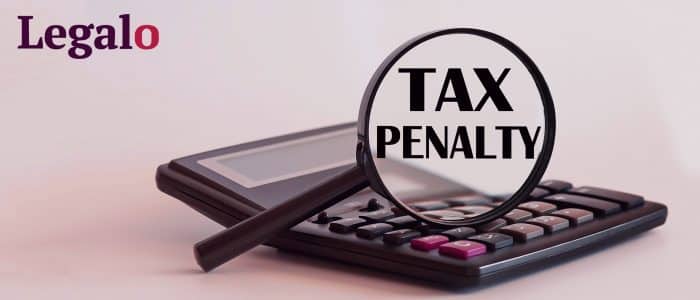10 Avoidable Mistakes That Can Cost Your Side Hustle
David Cammack

Many Britons have set up a side hustle or small business recently (e.g. by running their own Amazon store), but many are unaware of the legal, financial and personnel blunders that could see them facing costly fines and penalties.
The number of people who want to start their own business is on the rise, but many are unaware of the legal, financial, personnel and entrepreneurial aspects of business, which is why Legalo has put together a list of possible legal issues you can come across, even as a one-man band. Focused on the legal, financial, personnel and entrepreneurial aspects of business, you’ll see what expensive blunders you should avoid, so that you can protect the value of your business.
Most people don’t know that online selling comes with an array of legal rules, despite the fact that thousands of people rushed to set up new online businesses during the pandemic.
Here are our Top 10 Tips for setting up your new business correctly and keeping it compliant:
1. Failure to understand the customer’s right to a refund
The specific laws that apply to sellers in the UK and EU are very different to the laws that apply to overseas sellers. A very common error is a business seller overlooking the customer’s right to a refund. Across numerous online platforms, sellers advertise that they will not accept returns or grant refunds.
If you are an online seller, it is important you understand the Consumer Contracts (Information, Cancellation and Additional Charges) Regulations 2013 (CCIC). This is specific legislation UK sellers must adhere to. It covers the consumer’s right to a refund, the right to cancel and the right to information. Refunds can be required for lost, faulty or damaged goods.
The cooling-off period
However, online shoppers from the UK are also entitled to a ‘cooling-off period’ under the CCIC Regulations. (Customers of EU businesses have similar rights under other legislation: the Consumer Rights Directive.) This means they have the right to change their minds and cancel the purchase until at least 14 days after the goods have been received. This applies regardless of whether the product is faulty.
On cancelling, they are entitled to a full refund of the purchase price and delivery costs. Sellers must honour such a full refund simply if the buyer has changed their mind or found it cheaper elsewhere. Once the return process is started, the buyer must return the goods to the seller within 14 days, with the buyer paying the return postage.
Sellers can refuse a refund if the product is:
- perishable, such as food; or
- if it is CDs or DVDs where the packaging seal has been broken; or
- if the item is unique and was made to order; or
- an item with a broken seal where the seal is for hygiene reasons, such as medical or cosmetic products.
These rights protect online UK and EU customers. Online customers in other countries may not have the same or as good protection.
2. Completely understanding the legal terms and policies of the specific platform you are using
It’s important for sellers to understand the legal terms and policies of their platform. Firstly, you need to comply with the platform’s own rules and policies. Secondly, it isn’t just about complying with the laws on selling in the region that you are based in. If you sell overseas, you may have other rules to comply with.
3. Checking the fine print of your main employment
It’s crucial to make sure you’re not starting a side hustle that violates your full-time job contract. If you have a part of your contract that says you can’t start or be involved with another business, it’s best to avoid starting a side hustle. You could of course ask permission of your employer. Quite often they will grant permission if the side hustle:
- will be operated outside of your normal working hours;
- is not in competition with your employer’s business; and
- will not impinge on your performance.
Don’t risk losing your main job.
4. Should your side hustle be a limited company?
You can operate as a sole trader, a partnership (if there is more than one of you owning the business) or a limited company. Take tax advice on which situation is most suited to your own tax situation and your business. The rate of tax the business will pay depends on whether it is a limited company or not.
You should also understand that your personal wealth is at risk if you are not operating your business via a limited company. Operating through a limited company, once you know the business will be more than a small side hustle, will give your personal wealth much better protection.
5. Registering your side hustle for tax with HMRC

Once you make more than £1,000 a year from a side hustle, then registering as self-employed and paying tax on it is vital. You have until 5th October in the next tax year after the tax year in which you started business to register with HMRC.
If you operate as a partnership, then you need to register the partnership and also separately register each partner.
Any limited company should be registered with HMRC for corporation tax as soon as it has completed 3 months of trading.
Then, don’t forget to file your accounts, tax returns on time. Companies House levies an automatic fine for late filing of a company’s annual accounts (even if only a few minutes late). HMRC charges late filing fees, penalties and interest for late filing or late payment of tax.
6. Using personal bank accounts for your side hustle
Side hustlers should not use their own personal bank account for business banking. A separate business account is the best idea if you are starting out. Signing up for a business bank account will allow you to see what is coming in and out more easily, use invoicing and link to online accounting.
7. Use an online accounting package for your side hustle
You can then connect your business bank account’s feed to an online accounting package, such as Xero.com, to help you:
- work out your profits easily (monthly management accounts);
- keep an eye on cashflow;
- prepare your annual accounts for filing with HMRC (and Companies House if you are a a limited company); and
- prepare for tax.
8. Get the right agreement in place for a jointly-owned side hustle
Any jointly-owned business needs either a partnership agreement or shareholders agreement (if in a limited company). This is of critical importance if using a limited company for a jointly-owned business. For a more detailed explanation of why this is critical, please read this blog article.
Here, Legalo can help you with a great template for:
9. Get insurance for your business
Every business should have appropriate commercial insurance. Speak to a commercial insurance broker about what insurance types you need. If you have employees, then by law you must have Employer’s Liability insurance as a minimum.
If you fail to hold insurance, you are putting the whole business at risk, and, if you are a sole trader, you are adding further risk to your personal wealth.
10. Register your side hustle for data protection use
Every business will be using and processing personal data, mainly relating to customers, suppliers and employees. As such, nearly every UK business needs to register with the ICO and pay at least £35 (larger businesses pay more). Even if only running a side hustle, you will still need to register for the use of personal data.
There are potentially massive fines if you fail to register, misuse personal data or have your business hacked resulting in loss of personal data. Register as a start. For a detailed free guide on data protection laws and how to comply when marketing your business, see our expert guide on data protection here.
Conclusion
Whether starting a side hustle or a new full-time business, there are rules and regulations you need to adhere to, otherwise you run the risk of fines and prosecution. Knowledge is the key, so that you don’t blunder into making a costly mistake.
So, hopefully, the above list will help you get an idea of what you need to have sorted.
Whether you are a small business, a serial entrepreneur and or setting up your first side-hustle, Legalo is here to support you with:
- a great range of legal templates to save you money; and
- free legal tips and guidance.
We’d love to hear from you. Are you thinking of setting up a side hustle or already have one running at the moment? What are the main challenges you have faced so far?
